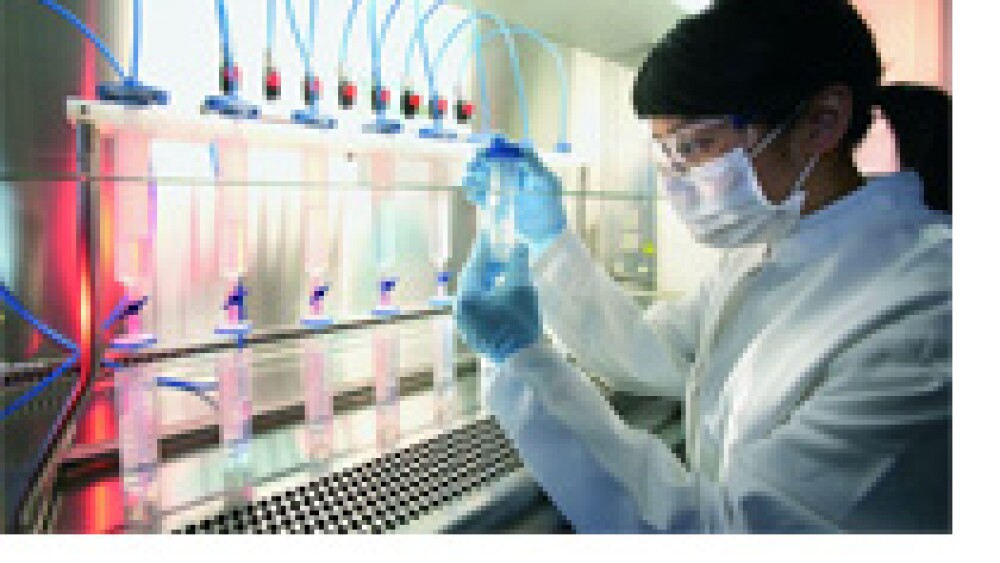September 18, 2015
By Alex Keown, BioSpace.com Breaking News Staff
CAMBRIDGE, Mass. – Illinois-based AbbVie is staking out its own space in Cambridge, the hottest pharmaceutical real estate area in the country, the Boston Business Journal reported this morning.
AbbVie, the maker of arthritis drug Humira, has taken space in a site previously occupied by Vertex Pharmaceuticals , which has been redeveloped by BioMed Realty. The Journal reported AbbVie signed a lease to occupy 43,000 square feet of space in the complex. The Journal did not specify if AbbVie, which is based in suburban Chicago, was closing down existing facilities and shifting operations to the area, or if this was a brand new site. An AbbVie spokesperson told the Boston Globe the company would take over the space in August 2016, but did not disclose what kind of research would be conducted at the facility.
The space could be used to help develop Venetoclax, a promising experimental leukemia drug developed by Genentech . In August AbbVie reported Venetoclax, a small molecule inhibitor of the BCL-2 protein, reduced the number of cancer cells in patients with previously treated (relapsed or refractory) chronic lymphocytic leukemia during a mid-stage clinical trial.
AbbVie failed to grab a toehold in Boston last year when a deal to acquire Shire Pharmaceuticals fell apart after the U.S. government changed the tax rules on companies relocating their corporate headquarters overseas to receive tax breaks.
Cambridge, Mass. has become one of the most sought after areas for pharmaceutical and biotech companies. Earlier this month Indianapolis-based Eli Lilly and Company nabbed an extra 6,000 square feet of space, taking the company’s total real estate in the Cambridge-area to 23,000 square feet. In May, Eli Lilly announced it will build a new drug delivery and device innovation center in Cambridge, called the Lilly Cambridge Innovation Center. The new center was established as part of a push by Eli Lilly to be an industry leader in providing reliable drug and medical device delivery to the marketplace, John Lechleiter, president and chief executive officer of Lilly, said in a May statement.
“Locating in Cambridge is an important strategic move for achieving this goal, as it provides us access to a concentration of high-caliber academic institutions, cutting-edge life science and technology companies, and some of the world’s leading talent,” Lechleiter said at the time.
BioMed Realty Trust, Inc. owns more than 3 million square feet of property in the highly sought after area. The property was once the home of Vertex Pharmaceuticals . Earlier this year BioMed Realty, which focuses on life science and biotech properties, rebranded the three buildings that formerly housed Vertex as the Sidney Research Campus. Vertex vacated the space in 2013 when it moved a few miles into Boston.
Other companies that have taken up residence in the same Kendall Square office center include Compass Therapeutics and Semma Therapeutics. BioMed told the Journal that the building is about 75 percent occupied at this time. In July CRISPR Therapeutics and Synlogic have both secured space in the facility. They will join RaNA Therapeutics, Inc., a 25-employee preclinical biotech headed by Ron Renaud, the former CEO of Idenix Pharmaceuticals, Inc. as the first tenants of the facility.
One of the reasons for the greater Boston area becoming such a major hub in the biotech and pharmaceutical industries is the plethora of research universities in the area. Boston also has one of the highest educated workforces in the nation. Not only are smaller companies calling the Boston area home, but many larger and established pharmaceutical companies, such as Pfizer Inc. , GlaxoSmithKline , Takeda Pharmaceuticals , Sanofi , Biogen Idec, Inc. and Novartis AG have presences in the city. The close proximity of so many pharmaceutical and university laboratories provides researchers and scientists easy access to clinical studies and building partnerships between companies.





